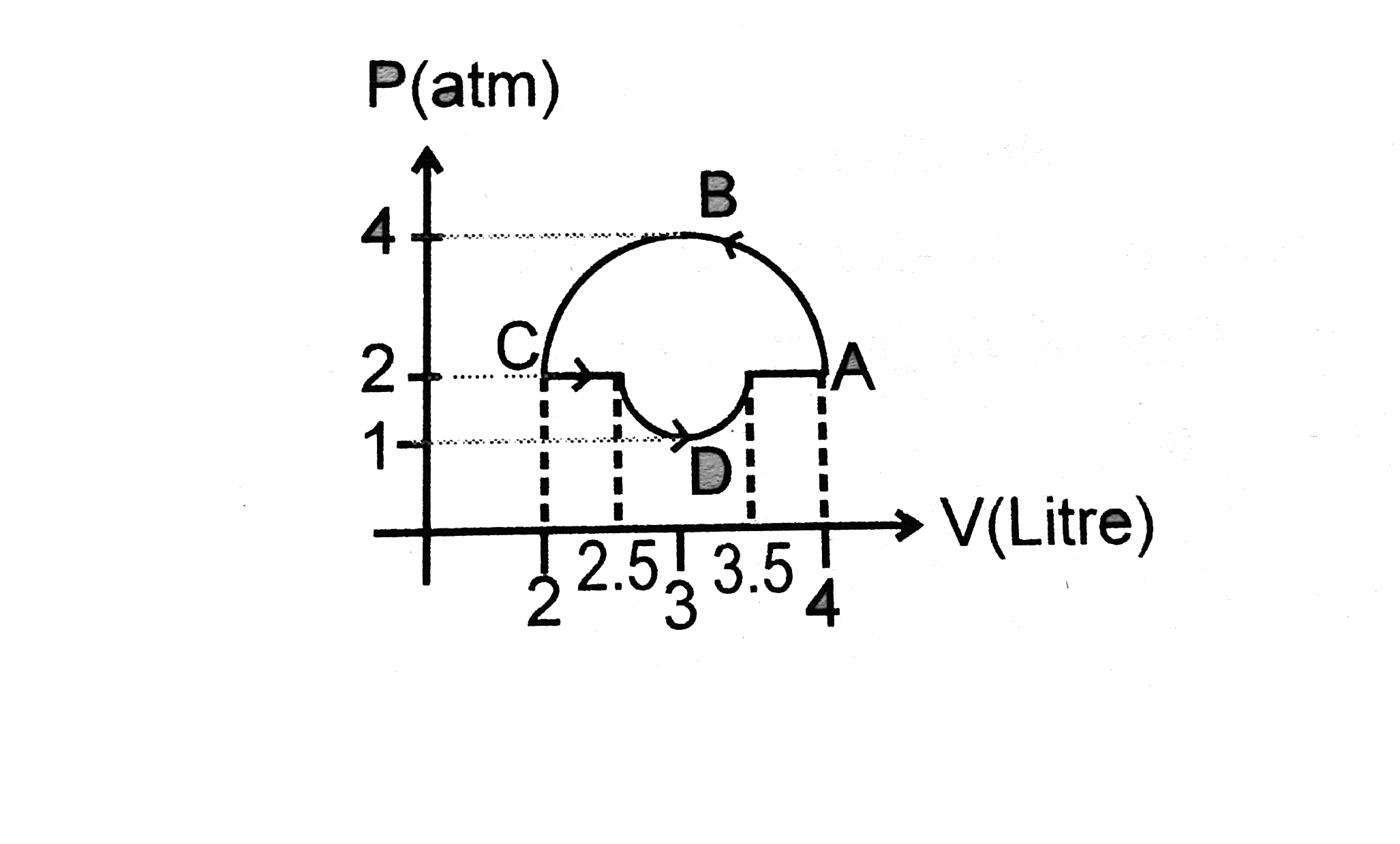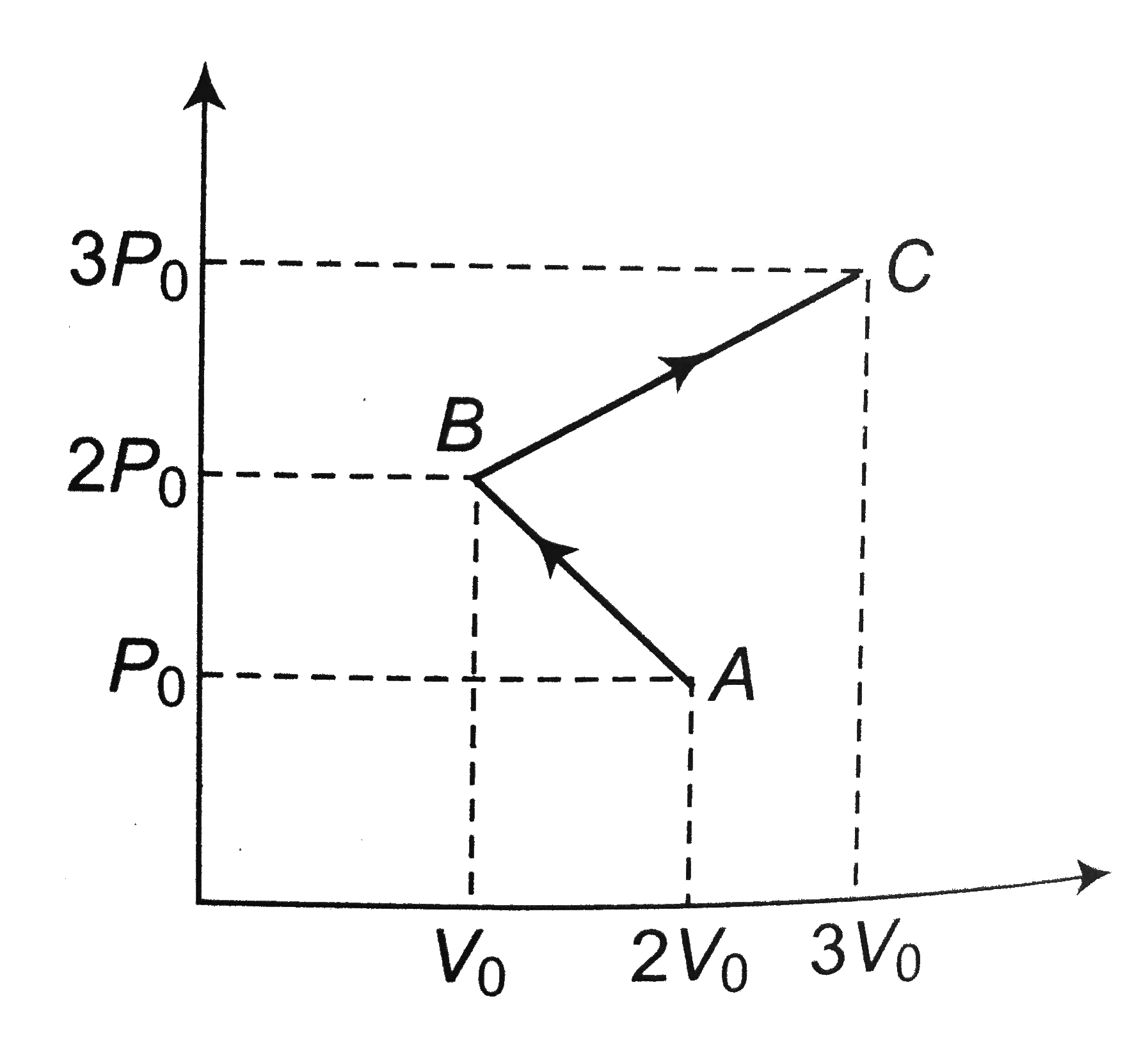Assertion : In an adiabatic process, change in internal energy of a gas is equal to work done on/by the gas in the process.
Reason : This is because temp.of gas remains constant in an adiabatic process.
If both assetion and reason are true and reaasons is the correct expanation of assetion
If both assetion and reason are tur but reason is not the correct explanation of assetion
If assertion is true but reason is false
If both assertion and reason are false.
The correct Answer is:D
To solve the question, we need to analyze the assertion and the reason given in the context of thermodynamics, particularly focusing on adiabatic processes.
1. Understanding the Assertion:
- The assertion states that in an adiabatic process, the change in internal energy (ΔU) of a gas is equal to the work done (W) on or by the gas.
- According to the first law of thermodynamics, we have:
dQ=dU+W
- For an adiabatic process, there is no heat exchange with the surroundings, which means:
dQ=0
- Therefore, we can rewrite the first law as:
0=dU+W⟹dU=−W
- This indicates that the change in internal energy is equal to the negative of the work done by the gas. If work is done on the gas, ΔU is positive, and if work is done by the gas, ΔU is negative.
2. Understanding the Reason:
- The reason states that the change in internal energy is equal to the work done because the temperature of the gas remains constant in an adiabatic process.
- However, this statement is incorrect. In an adiabatic process, the temperature of the gas does not remain constant; it changes. The internal energy of an ideal gas is related to its temperature, given by:
ΔU=nCvΔT
- Since ΔU is not zero in an adiabatic process, ΔT cannot be zero either. Therefore, the temperature of the gas changes during an adiabatic process.
3. Conclusion:
- The assertion is correct: the change in internal energy of a gas in an adiabatic process is indeed equal to the work done on or by the gas.
- The reason is incorrect: the temperature of the gas does not remain constant in an adiabatic process; it changes.
Thus, we conclude that the assertion is true, but the reason is false.
Final Answer:
- Assertion: True
- Reason: False
- The assertion states that in an adiabatic process, the change in internal energy (ΔU) of a gas is equal to the work done (W) on or by the gas.
- According to the first law of thermodynamics, we have:
dQ=dU+W
- For an adiabatic process, there is no heat exchange with the surroundings, which means:
dQ=0
- Therefore, we can rewrite the first law as:
0=dU+W⟹dU=−W
- This indicates that the change in internal energy is equal to the negative of the work done by the gas. If work is done on the gas, ΔU is positive, and if work is done by the gas, ΔU is negative.
- The reason states that the change in internal energy is equal to the work done because the temperature of the gas remains constant in an adiabatic process.
- However, this statement is incorrect. In an adiabatic process, the temperature of the gas does not remain constant; it changes. The internal energy of an ideal gas is related to its temperature, given by:
ΔU=nCvΔT
- Since ΔU is not zero in an adiabatic process, ΔT cannot be zero either. Therefore, the temperature of the gas changes during an adiabatic process.
- The assertion is correct: the change in internal energy of a gas in an adiabatic process is indeed equal to the work done on or by the gas.
- The reason is incorrect: the temperature of the gas does not remain constant in an adiabatic process; it changes.
- Assertion: True
- Reason: False
Topper's Solved these Questions
- THERMODYNAMICSBOOK - NCERT FINGERTPS ENGLISHCHAPTER - THERMODYNAMICSEXERCISE - Zeroth Law Of Thermodynamics
2 Videos
- THERMODYNAMICSBOOK - NCERT FINGERTPS ENGLISHCHAPTER - THERMODYNAMICSEXERCISE - Heat, Internal Energy And Work
2 Videos
- THERMODYNAMICSBOOK - NCERT FINGERTPS ENGLISHCHAPTER - THERMODYNAMICSEXERCISE - HOTs
8 Videos
- THERMAL PROPERTIES OF MATTERBOOK - NCERT FINGERTPS ENGLISHCHAPTER - THERMAL PROPERTIES OF MATTEREXERCISE - Assertion And Reason
10 Videos
- UNITS AND MEASUREMENTSBOOK - NCERT FINGERTPS ENGLISHCHAPTER - UNITS AND MEASUREMENTSEXERCISE - Assertion And Reason
15 Videos
Similar Questions
Knowledge Check
The ideal gas equation for an adiabatic process is
APVγ=constantBTVγ+1=constantCPγ−1=constantDPγ+1T=constant
Find work done by the gas in the process shown in figure.

View SolutionFind work done by the gas in the process shown in figure.

View SolutionHeat taken from a gas in a process is 80 J and increase in internal energy of the gas is 20J. Find work done by the gas in the given process.
View SolutionTotal internal energy of an ideal gas remains constant in isothermal process.
View SolutionFor adiabatic process of an ideal gas the value of dPP is equals to
View SolutionChange in internal energy in an isothermal process for ideal gas is
View SolutionWhat happens to the change in internal energy of a gas during adiabatic expansion?
View Solution
